The Home Front is an ongoing series where we highlight the mission and ministry taking place around our territory. We will visit each Canadian province and territory, as well as Bermuda, and celebrate the innovation and impact the Army is having in corps, social services and youth ministry.
MUSICAL IN MONTREAL
In November 2024, Montreal Citadel marked its 140th anniversary, celebrating with a weekend of special events. One of the highlights was a performance of Humanity 2.0, an adaptation of a musical by General John Gowans and General John Larsson, the creative partnership behind many Salvation Army musicals.
“We chose it because it was different than the others. It posed a question that was appropriate for a church: how do you stay focused on Jesus rather than trusting in your own structures, skills and competencies?” says Colonel Glen Shepherd, who brought the idea of a musical to corps officers Captains Indira Albert and Juan Chirinos. “It was a good question for an anniversary weekend.”
Colonel Shepherd asked his daughter, Elizabeth Shepherd, a member of the corps and a professional musician, to direct the performance.
“I’ve grown up with these musicals,” she says. “I still find myself humming the songs.”
Dara Murphy, another corps member and a playwright, adapted the script. Originally called Man Mark II, it premiered at an international youth congress in Macomb, Illinois, in 1985.
“Dara pointed out that some of the terms and language didn’t connect,” says Colonel Shepherd.
“Like the title—‘Mark II’ is a car model from the 1950s. She pushed us to remain faithful to what John Gowans wrote, but to cast it in a 21st-century setting.” Mark II, which refers to the second version of something, became Humanity 2.0.
The musical came together over eight weeks of rehearsal. The performers, ages five to 80, were a mix of English, French and Spanish speakers, reflecting the cultural diversity of the congregation. They decided to represent this melting pot of languages in the musical.
“One character would speak a line in French, and then the next character would answer in English,” says Murphy.
“There were always threads to make sure nobody got lost,” adds Colonel Shepherd.
“This is a phenomenon that you have in Montreal, where people carry on conversations in English and French,” says Elizabeth. “It sounds a little crazy, but it is very much reflective of how a conversation could go in the city.”
Humanity 2.0 is the story of a group of Christians who set out to use modern techniques and cultural relevance to share the gospel. They are visited by the Apostle Paul, who reminds them to keep the cross of Christ at the centre. The group reaffirms its commitment, not just to serve the modern age, but to serve Jesus at all costs.
LEADERS IN TRAINING
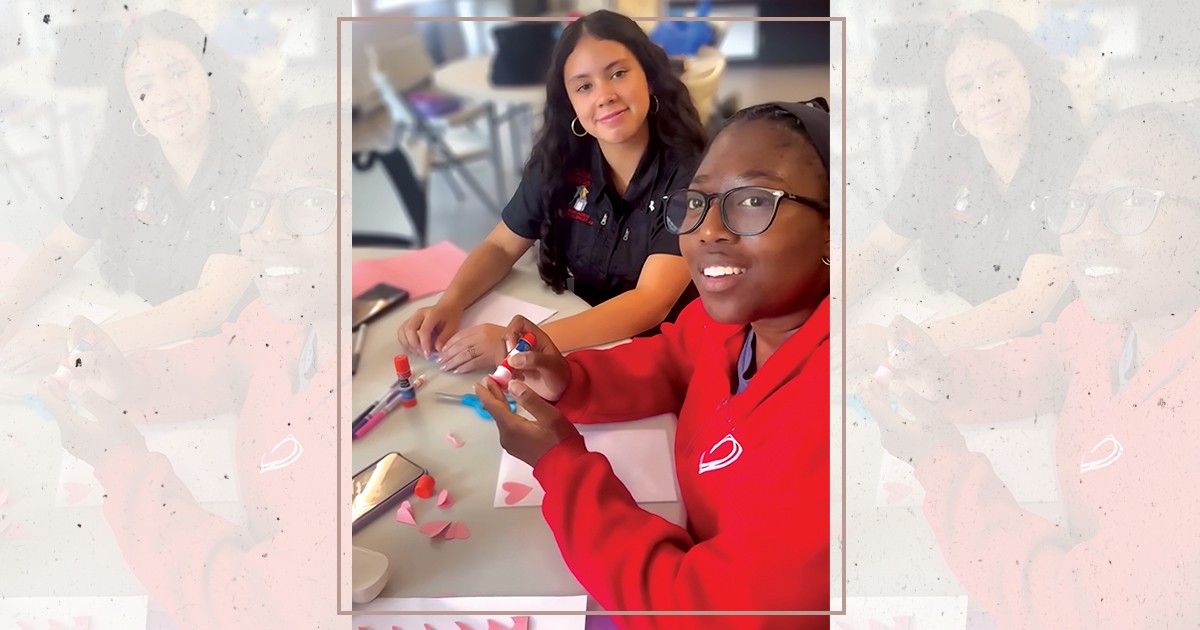
From left, Valeria Rivera and Rejoice Ndlovu make cards for campers
In Montreal, summer in the city means food, festivals and fireworks— and Salvation Army camping ministry, although it looks different than in years past.
“We went through a period of grief when Camp Lac l’Achigan was sold,” says Captain Juan Chirinos, who serves as the area youth secretary in the Quebec region of the Atlantic Division, in addition to being the corps officer at Montreal Citadel. “But we grew to realize that it wasn’t the place that made us—it was the meaning of the place that was important.
“So, we decided to bring what happened at camp to the city. The Lord has been so faithful. From that sad moment, something beautiful was born.”
The Salvation Army now runs day camp in the summer, forging strong relationships with campers, parents and staff. One of the things they brought from camp was the LIT (leaders in training) program, which brings together camp staff and 10 to 12 other youth, ages 13 and up, from corps around the city, for two weeks at the end of the summer.
“It’s an opportunity for discipleship, to help them grow in their spiritual life, and to discover and develop their skills,” says Captain Chirinos.
The day begins with a time of teaching. Last summer, they read Practicing the Way, an introduction to spiritual formation by John Mark Comer, and practised the disciplines of confession, silence and solitude. They also learned practical skills for working at camp, such as leading games and activities, and how to pray with and for kids. Of course, there was also time for fun and ice cream.
For Captain Chirinos, these two weeks create a safe environment for young people to explore their faith. “It gives them a place where they can be who they are, where they can express their questions and struggles—questions they perhaps can’t ask in church,” he says. “For example, how to live out their faith at school, when their friends are so different. How to be faithful, when surrounded by temptation. How to recognize God’s voice.
“It gives us a chance to be real with them and offer mentorship.”
As they hear the message of what it means to live for Christ, they often start to ask how they can participate in serving him. Captain Chirinos encourages them to get engaged in their local corps. A number have taught Sunday school, led the children’s time during the service, helped with regional events and volunteered for kettles.
“They get involved, and it’s just beautiful.”
FOOT CARE IN QUEBEC CITY
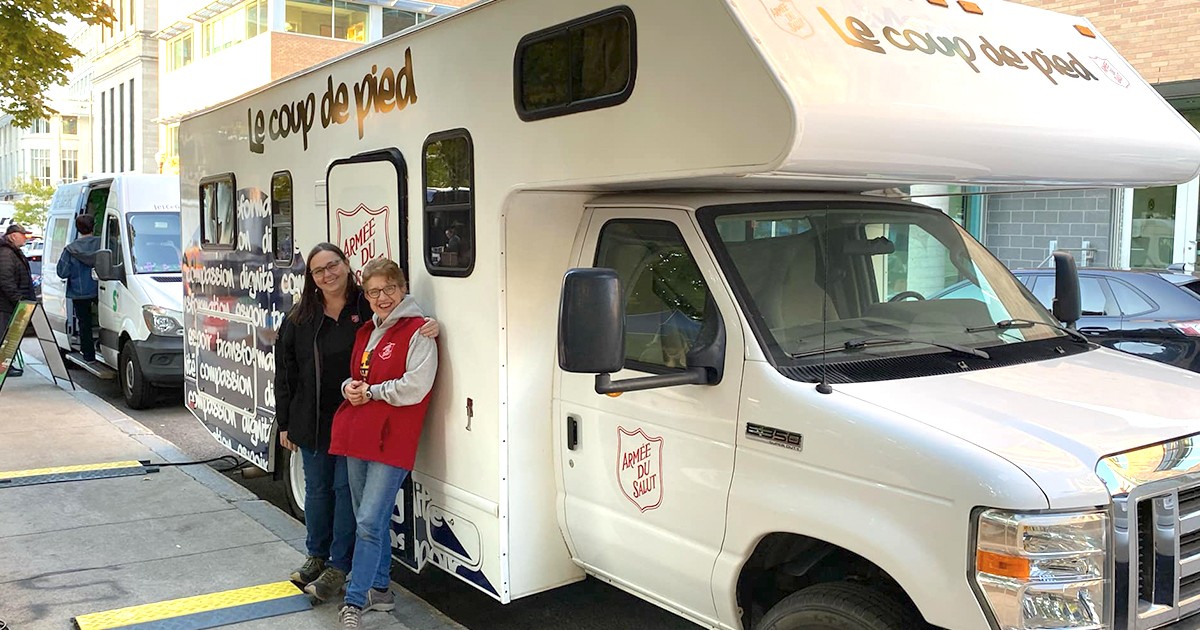
for people experiencing homelessness in Quebec City
For people experiencing homelessness, foot problems are common. Exposure to the elements, poorly fitting or worn-out shoes, prolonged standing and walking, difficulty staying clean and dry—it can all lead to pain, infection or even frostbite. Being homeless is hard on your feet.
That’s why Major Anne-Marie Dagenais, community ministries director for The Salvation Army in Quebec City, applied for an innovation grant to start a mobile foot care clinic.
“In my last appointment, where I also worked with unhoused people, I gave out so many nail clippers,” she says. “I realized foot care was a need.”
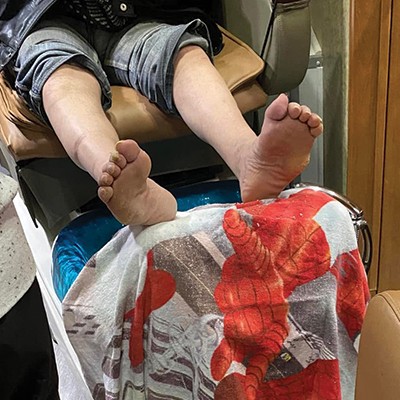
The grant allowed Major Dagenais to convert a camper van into a clinic, with a spa chair for pedicures. Their first outing was last October, as part of “Night for the Homeless,” an annual vigil and awareness event in Quebec. Over three hours, they saw about 12 people.
“We washed their feet and our volunteer, a retired nurse, examined and treated any problems,” says Major Dagenais. “People with diabetes often have problems with their feet—they get very swollen, and they need specific care.”
Along with foot care, they offered coffee and snacks and distributed socks. The waiting time also gave Major Dagenais an opportunity to chat and start building relationships with people who live on the street, as she considers other ways to serve this community.
Major Dagenais is hopeful that the Army will soon be offering foot care with “Le coup de pied” (the kick) two evenings a week.
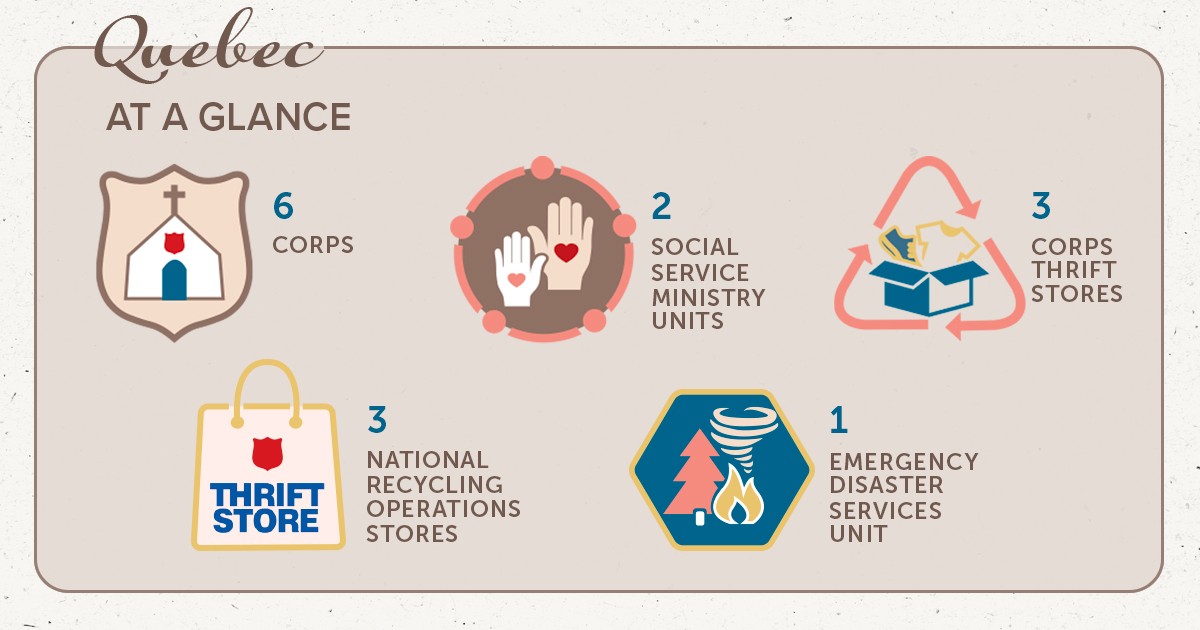
Quebec
At A Glance
LT-COLONEL SCOTT RIDEOUT
Divisional commander
LT-COLONEL MICHELLE RIDEOUT
Divisional officer personnel secretary and divisional secretary for spiritual life development
6 Corps
2 Social Service Ministry Units
3 Corps Thrift Stores
3 National Recycling Operations Stores
1 Emergency Disaster Services Unit
This story is from:




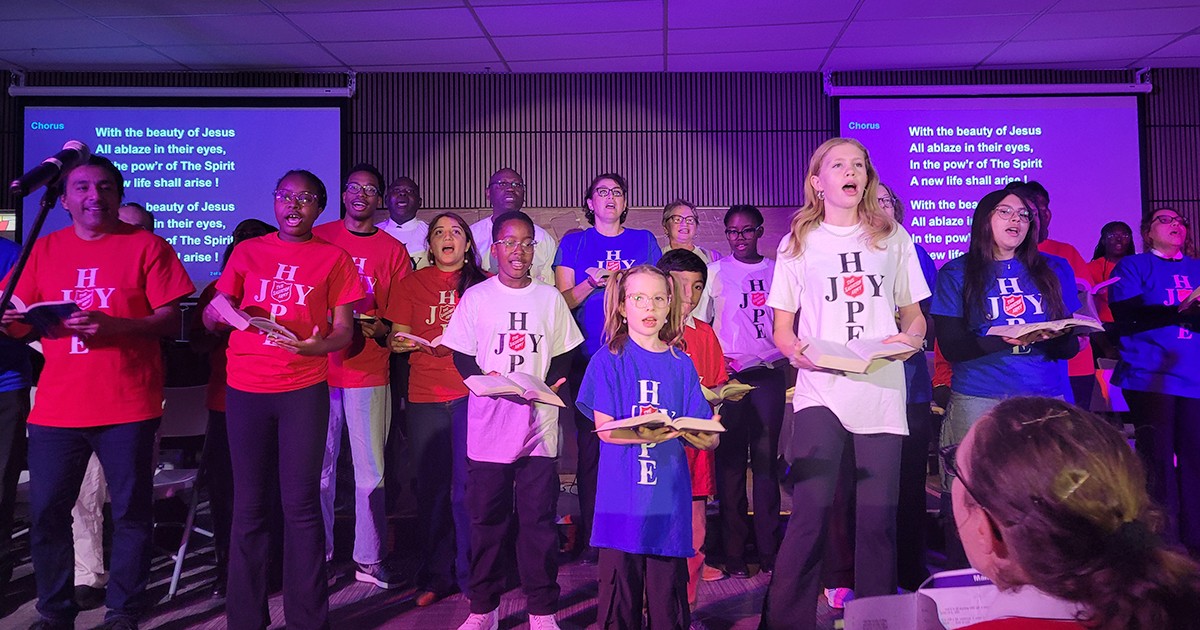





Leave a Comment